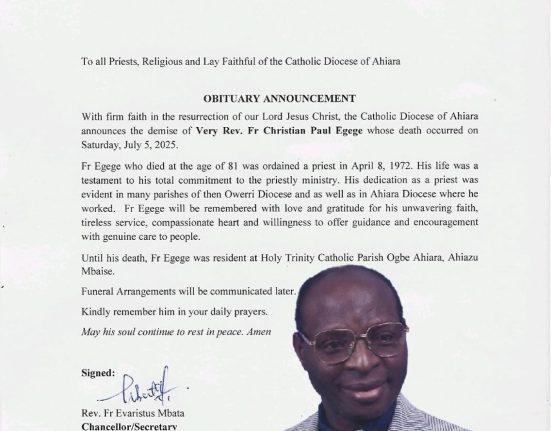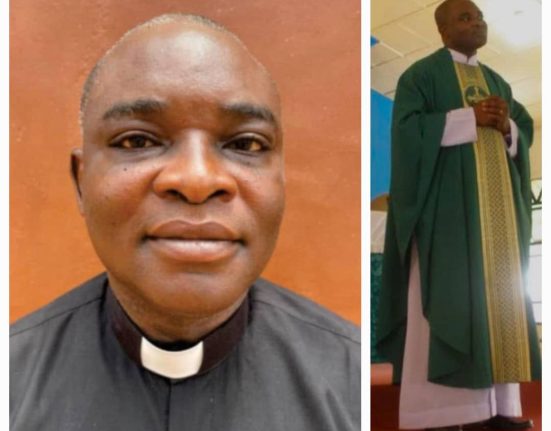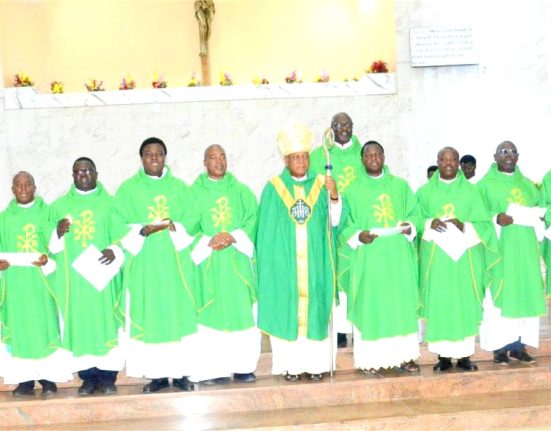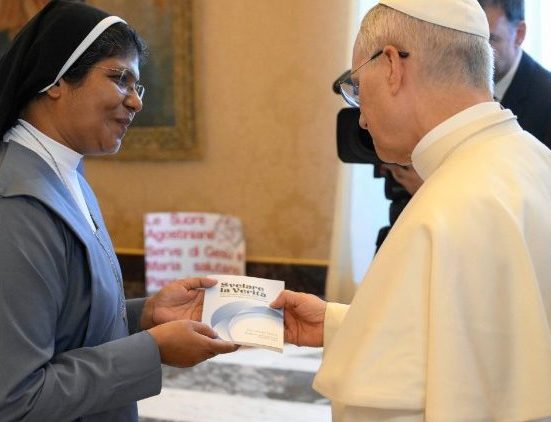*Archbishop Lucius Ugorji of Owerri* delivered a somber yet uplifting message, acknowledging the despair that currently grips the nation. He lamented the pervasive insecurity, economic hardship, and apparent government inertia, describing Nigeria as a “nation under siege.” Archbishop Ugorji likened the state of the country to the hopelessness experienced by the apostles after Christ’s crucifixion. However, he stressed that Easter brings a message of divine intervention—that God does not allow evil to prevail forever. Echoing the theme that the darkest hour is just before dawn, he urged the faithful to cling to the hope that, just as Christ triumphed over death, Nigeria too will rise above its present turmoil.
*Archbishop Augustine Akubeze of Benin City* centered his Easter message on the theme “The Risen Lord is Our Hope and Our Joy.” He invited the faithful to rejoice in the victory of Christ over death, reminding them that Easter is the fulfillment of Christian hope. The resurrection, he explained, transforms despair into joyful confidence, assuring believers that the grave is not the end, but a gateway to eternal life. Drawing from the Catechism of the Catholic Church and St. Paul’s letters, Archbishop Akubeze emphasized that hope in Christ should not be limited to this world. Instead, it should propel Christians through life’s difficulties with the assurance of heavenly reward. He described Easter joy as a peace that only God can give—one that sustains the human spirit amid tribulation.
*Bishop Matthew Hassan Kukah of Sokoto* gave a passionate and prophetic message titled “Mr. President: Bring Us Down from This Cross.” Using the metaphor of the crucifixion, he portrayed Nigeria as a nation hanging on a cross of hunger, insecurity, corruption, and despair. Though he acknowledged that the current president did not originate Nigeria’s problems, Bishop Kukah insisted that it was his responsibility to lift the people from their suffering. With characteristic eloquence, he critiqued political inaction and the persistence of structural injustice. Bishop Kukah called on the president and the government to restore the people’s dignity, address the cancer of insecurity, and ensure food security for all. He closed with a reminder that the resurrection empowers Christians to resist darkness and to work for a renewed society anchored in hope and justice.
*Bishop Peter Odetoyinbo of Abeokuta* offered a deeply reflective message grounded in God’s faithfulness. He reminded the faithful that Easter is a testimony to the steadfast love of God, who fulfills His promises through the resurrection of Christ. While acknowledging the many challenges confronting Nigeria—such as insecurity, hunger, and economic decline—he called on both Church and society to reignite hope. He appealed to government to provide basic infrastructure and to uphold the dignity of its citizens, especially the youth whose dreams are often cut short by brain drain and despair. Bishop Odetoyinbo encouraged all Nigerians to become agents of hope by extending charity and support to others, affirming that small acts of love can rekindle the flame of national and personal renewal.
*Archbishop Matthew Man-Oso Ndagoso of Kaduna* focused his message on the restoring power of Christ’s resurrection, particularly for those living in despondency. Drawing on the story of the disciples on the road to Emmaus and Mary Magdalene at the tomb, he described how encounters with the Risen Christ restored shattered faith. He encouraged Nigerians facing poverty, insecurity, and the consequences of harsh economic reforms to find hope in Christ’s abiding presence. Citing Pope Francis’ Christus Vivit and the Jubilee Year of Hope, Archbishop Ndagoso emphasized the need for a moral and spiritual renewal across every level of society. He also praised some local peace-building efforts in Kaduna State and urged the government to replicate such initiatives for sustainable peace and food security.
*Bishop Emmanuel Adetoyese Badejo of Oyo* called for leaders to emulate the servant leadership exemplified by Jesus. He criticized political leaders for their inaction against the rampant violence and insecurity in Nigeria, urging them to use their resources to foster joy and justice rather than perpetuating suffering. He emphasized that true leadership requires sacrifice and service to the community, warning that leaders who ignore the plight of their people will face divine judgment.
Thanks for reading
*Fr. Okhueleigbe Osemhantie A*










Leave feedback about this